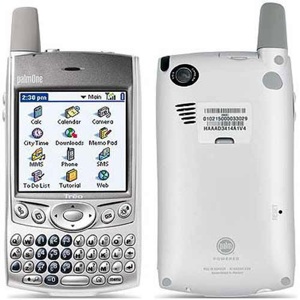Can the Palm brand bring developers and carriers to support the Nova OS?


A few years ago, if you had a mobile device in your hand the first question that always came out from a person was, "Is that a Palm Pilot?" That does not happen today and I am much more likely to hear a person ask if it is an iPhone or a BlackBerry. Palm was the king of the PDA in the old days and then with the revolutionary Palm Treo 600 they set the bar for smartphones and converged devices. The title was Palm's to lose and unfortunately, they did just that by being too stagnant in a market that was moving forward and looking for a device that brought more to the table than the Palm Treo (multimedia, enterprise support with Exchange or BlackBerry services, etc.). When Microsoft entered the PDA market with the Compaq iPaq back in 2000, I thought it was just another experiment by Microsoft that they would throw a lot of money into and then let die out when they found out they couldn't compete with Palm. I honestly did not think that the roles would be reversed so quickly between Palm and Microsoft, but Microsoft had a better product with a richer user experience. Palm devices also used to be rock solid and as the Treo 650 launched with other devices following, bugs and resets started to become way too common (matching the beta culture we have today with mobile devices).
Palm also went through a period of confusion for the consumer with splitting the OS and hardware divisions, then making two different companies, then selling the OS to another, then rebranding, and more events that should not have happened.
Despite all of this, I think the Palm brand is still quite strong (maybe even more so outside the world of enthusiasts and mobile device fanatics) and in 2009 Palm needs to take this branding back towards the top to succeed.
Steve also mentioned developers and back several years ago the Palm OS was king of 3rd party applications with something over 20,000 applications and thousands of developers madly churning out applications to support the platform. Windows Mobile and S60 now have thousands of applications, with the iPhone catching up as well, as developers have several choices in operating system for development. Developers are also now targeting the Android OS with Google's big money backing the venture and promoting development. I rarely see new software launched for the Palm OS and wonder if developers are ready to embrace and develop for a new OS from Palm given Palm's rather varied history over the last 5 years.
January 8, 2009 will be a turning point for Palm and I have to admit the announcement almost has me rearranging my schedule to attend CES. I will be following the news closely and hoping that Palm blows me away to start the new year and hopefully, new cycle of success for Palm.